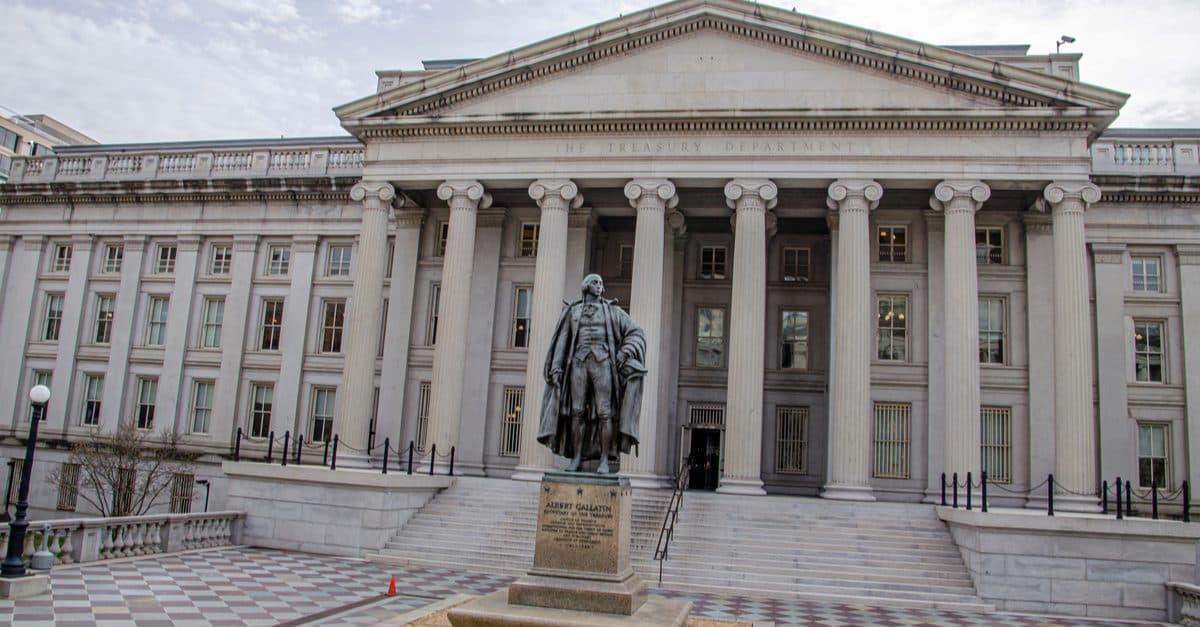Foreign Buyers Scramble To Purchase US Debt
Foreign debt buying soars as central banks look to trade their US dollars for treasury bills

Source: Shutterstock
key takeaways
- Foreign debt demand is at the highest level in over a decade
- More than 60% of 2-year notes went to foreign buyers
Despite inflation fears, foreign buyers are purchasing a staggering amount of US debt.
Foreign official entities took home $15.4 billion of the $41 billion, about 38%, available 10-year Treasuries, the latest report from the August 11 auction shows. More than 60% of 2-year notes went to foreign buyers, the highest in more than a decade.
The increase in foreign buyers, many of which were likely foreign central banks, might be due to the fact that foreign central banks are eager to offload their foreign-exchange reserve currency (USD), one analyst said.
“The United States’ biggest export is inflation, which means our biggest export is dollars,” said Steve Van Metre, founder of Steve Van Metre Financial. “Foreign banks accumulate dollars, and when the banks have too many dollars they convert them with foreign central banks to get local currency. As dollars pile up in a foreign central bank they become inflationary.”
Foreign central banks take foreign US dollars and exchange them for treasury securities, which pay small amounts of interest, but are not inflationary, Van Metre said.
In a surprise move, this month’s 10-year sale awarded notes at 1.34%, more than three basis points lower than the yield level prior to the auction. This is the highest premium since 2012.
Two-year notes also sold two basis points higher from the previous auction in late July at an auction-high yield of 0.24%. The Fed Funds target rate is between 0% and 0.25%.
“When the global economy is expanding, you actually see an increase in purchases from foreign investors, because they have too many dollars, and the opposite is also true,” said Van Metre.
“When the global economy is contracting, and foreign economies need dollars, they will sell the Treasury securities, you have to think of the Treasury securities almost as a foreign central bank savings account.”
The rate is not a major concern for foreign central banks because they intend to hold the treasuries rather than sell for the foreseeable future, Van Metre said. Given the current state of the global economy and due to the existing repurchasing facilities, foreign players purchasing high amounts of US debt is a trend likely to continue at future auctions.
“The Fed announced two stand-in repo facilities, domestic and foreign,” said Van Metre. “If you own any Treasury or agency-backed security, you need cash, it’s like a payday loan. Go to the Fed, and for a quarter percent for a year, that’s the interest cost, they will loan you cash on an overnight basis.”
Because bonds now have liquidity, there is little reason to anticipate lower rates of foreign debt purchasers. Refunding sales is a trend more commonly seen with 10-year bonds as opposed to shorter-dated treasuries, such as 2-year notes.
Want more investor-focused content on digital assets? Join us September 13th and 14th for the Digital Asset Summit (DAS) in NYC. Use code ARTICLE for $75 off your ticket. Buy it now.





